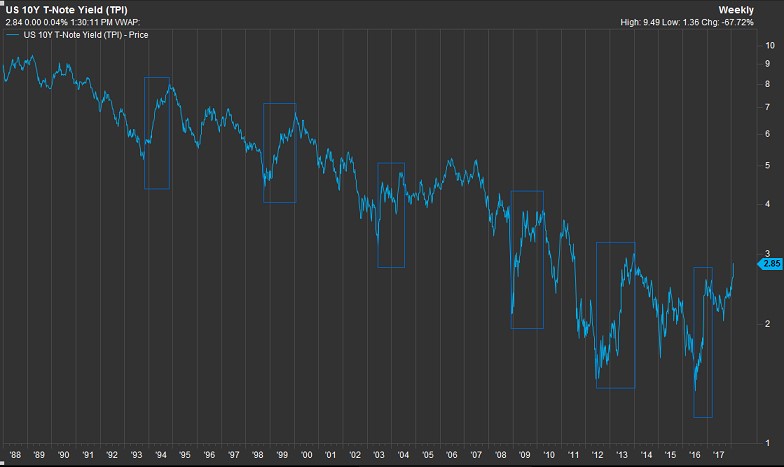Labor reports and interest rates do not make for very exciting tea party banter. In fact, the average person regards them as a dry subject and bringing them up is almost guaranteed to wrap up a conversation in record time.
Yet, for long-time equities investors, the two are inexorably linked and therefore unavoidable.
On Friday, June 1, the U.S. Bureau of Labor Statistics released the latest non-farm payrolls report that was solid by almost any yardstick.
Here's a rundown of some of its key highlights:
- Payroll growth clocked in at 223,000, the highest since February and easily exceeding expectations for 188,000.
- The unemployment rate fell to just 3.8 percent, the lowest reading since 2000. Meanwhile, 'real' unemployment (underemployed and discouraged workers) plunged to 7.6 percent, the lowest since 2001.
- Full-time jobs rose 904,000, while part-time positions fell by 625,000.
- Average hourly earnings climbed 2.7 percent and in-line with expectations.
A more aggressive Fed...
Those were pretty solid numbers that all but confirmed a third rate hike that has been chalked in for June.
Rising wages in particular provided a huge counterpunch to arguments against more hikes in the future.
Related: Peak Gold: Is It Already Here?
The Fed has been closely monitoring wage inflation, which has been conspicuous by its absence, in an otherwise healthy economy. Wages have previously remained stagnant even as the labor market approached full employment, something that has, ironically, been blamed on rising rates.
The June hike will be the Fed's second this year and the 7th during this cycle. Many observers expected three hikes for the full year--a couple more solid reports like May's might encourage the Fed to become more aggressive and throw in a fourth and maybe even a fifth for good measure.
...is not necessarily bad for stocks
Stock markets tend to have a knee-jerk negative reaction to rate hikes more often than not.
The last time a stronger-than-expected jobs report came out in February, the S&P went into panic mode and fell 6 percent in just two trading sessions.
In theory, rising interest rates are supposed to make equities look bad as investors prefer to put their money in higher-yielding bonds. Bond yields surpassed the average S&P 500 dividend yield in January and the gap has been widening.
Further, stocks are riskier than bonds because in the event of bankruptcy, bondholders are paid their capital before stockholders. Investors demand a higher risk premium for stocks as interest rates climb making them even more unattractive.
It's therefore quite encouraging that the markets have mostly reacted positively to the May labor report, with both stocks and bonds ticking higher.
Maybe the 'bad' news has already been priced in, especially after the huge February plunge.

(Click to enlarge)
Source: CNBC
But looking at the bigger picture proves that while stocks might react negatively to interest hikes in the short-term, the long-term trend is actually upwards.
Related: London’s $13T Metals Exchange Just Got Even Hotter
CNBC used Kensho, a hedge fund analytics tool, to analyze historical market trends during periods of rising interest rates.
Kensho identified six periods of major interest rate expansions over the last three decades.
The funny thing is that stock markets not only climbed during periods of aggressive interest rate hikes in five of those six expansions, but did so in a big way. Further, they only fell slightly during the single period when they failed to respond positively.
Looks like a case of heads, and stocks investors win big; tails, and they lose a little.
By Alex Kimani for Safehaven.com
More Top Reads From Safehaven.com:
















